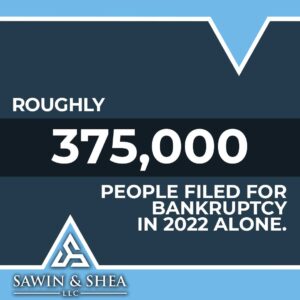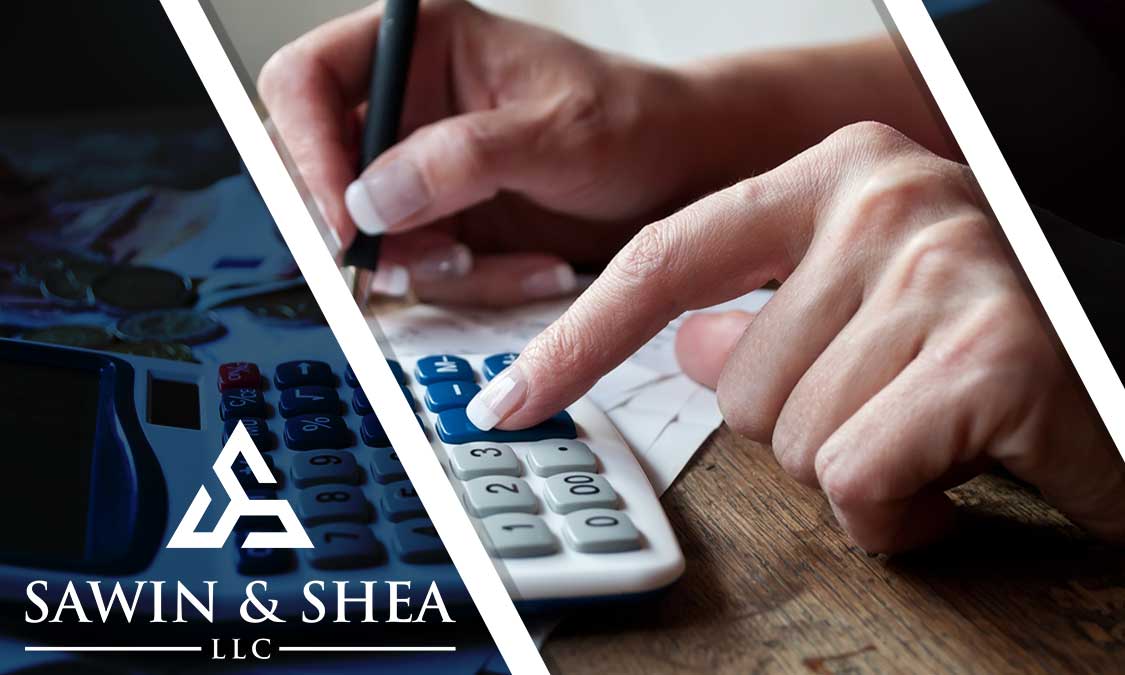
People file for bankruptcy for any number of reasons, from job loss, to unpaid medical bills, to sky-high credit card bills. And it’s not an uncommon event either– roughly 375,000 people filed for bankruptcy in 2022 alone.
It’s a good solution for many people because declaring bankruptcy provides some relief from the crushing weight of unpaid debt and helps them make a fresh start.
However, it’s important to note that not all debts are treated equally when it comes to filing for personal bankruptcy. There are some debts that filing for bankruptcy will not discharge.
Read on to discover what debts are not discharged in bankruptcy.
What’s the Difference Between Chapter 7 and Chapter 13?
Put simply, Chapter 7 is all about liquidation while Chapter 13 is about reorganization. What do we mean by this?
In the case of a Chapter 7 bankruptcy, the court appoints a trustee who is in charge of selling off (liquidating) a declarer’s non-exempt assets. Assets that do not fall within the statutory exemption values are liquidated and the proceeds used to pay your creditors something. However, the declarer is still responsible for paying non-dischargeable debt even after the process is complete.
Chapter 13 involves a 3 to 5 year plan to repay a portion of debt as determined under bankruptcy law. If the declarer keeps to the agreement, then at the end of the period, they can keep their otherwise nonexempt assets, and all most types of remaining debts are discharged.
What’s the Difference Between Dischargeable and Non-Dischargeable Debt?



It is important to understand that in either form of bankruptcy (Chapter 7 or Chapter 13), there are types of debt that cannot be discharged even after filing for bankruptcy.
In broad terms, bankruptcy law differentiates between consumer-related debt as well as secured vs. unsecured debt. If a debt is secured, it means it is backed up by collateral property. If a debt is unsecured, no collateral is put up as a guarantee to pay.
Dischargeable debt would include things like:
- Medical bills
- Credit card bills
- Utility bills
- Back rent
- Personal loans
- Repossession balances
At the end of the bankruptcy process, the remaining balances for these types of unsecured debts will likely be forgiven.
Non-dischargeable debt would include things like:
- Some state, local, and federal taxes
- Child support, spousal maintenance and/or other debts dedicated to family support
- Student loans (see below about discharging student loans in a bankruptcy)
- Court fees
- Punitive debt (more on that below)
- Credit purchases of $1,150 or more for luxury items made within 60 days of filing, if an adversary proceeding deems the debt not discharged.
A Special Note About Student Loan Debt
Can student loans be discharged in bankruptcy? While it is possible to petition the court to discharge student loans via bankruptcy, the reality is that it can be a significant challenge for most people to meet the requirements.
The court views certain debts as ‘non-priority’ and others as ‘priority,’ based on when and how they should be paid. Typically, student loan debt is considered a non-priority and so isn’t likely to be paid before other priority debts like child support, alimony, and unpaid taxes.
The only exception is if you can prove that your student debt presents undue hardship to yourself and your dependents through a separate legal proceeding called an Adversary Complaint. The process for proving hardship is complex and can be intimidating for most, which is why it’s important to consult with an experienced bankruptcy attorney.
Are Punitive Damages Dischargeable in Bankruptcy?
Punitive damages are typically not dischargeable in bankruptcy. These damages are often assessed as a form of punishment for particularly egregious conduct, such as intentional harm or gross negligence, rather than as compensation for a specific loss. Bankruptcy laws generally prevent the discharge of debts arising from willful and malicious actions or debts incurred through fraudulent behavior. Since punitive damages are associated with intentional wrongdoing or misconduct, they usually fall under this category of nondischargeable debts. These type of debts, generally, are discharged unless the creditor files a special lawsuit in the bankruptcy asking the court to declare them not discharged, However, it’s essential to consult with a bankruptcy attorney for precise guidance on your specific situation, as bankruptcy laws can be complex and subject to interpretation.
Sawin & Shea: Experienced Indiana Bankruptcy Attorneys
Laws around bankruptcy are complex and are constantly changing. For the best advice and to ensure that your bankruptcy process will proceed as smoothly as possible, your best choice is to hire an experienced lawyer.
An attorney with experience in bankruptcy law can help you with filings and guide you through the complicated, often confusing process. The Indiana bankruptcy attorneys at Sawin & Shea, LLC have been helping people navigate the bankruptcy process for years. If you’re considering filing for bankruptcy, we’d love to schedule a free consultation with you today-317-759-1483.



